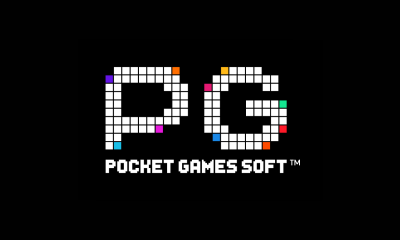Latest News
MeitY Blocked 1300 Illegal Sites But Offshore Platforms Still Exist

The Ministry of Electronics and IT (MeitY) in India has issued 1298 orders between 2022 and 2024 to block online betting, gambling, and gaming websites. But executives from real money gaming firms allege that non-compliant offshore platforms continued to thrive in India.
Additionally, the Directorate General of Goods and Services Tax Intelligence (DGGI), in a note published in March, said it had blocked 357 non-compliant offshore RMG entities, with 700 more under scrutiny.
With the ban on homegrown RMG platforms, offshore entities are expected to thrive, cornering the entire Indian market through a web of channels on social media messaging platforms and proliferation of these apps operated from regulatory havens.
“The cracking down on offshore platforms led us to believe that the centre was focussed on curbing these operators by working with the homegrown industry as partners. There were risk and analytics people advising the government on illegal money flows and suspicious behaviour,” an executive with knowledge of the matter said.
Executives added that the industry co-operated with the government on cracking down the offshore entities during the past few months. Offshore entities continued to promote their services through outdoor advertising, despite government orders to block them, they said.
Executives noted that bans on legitimate operators in states like Andhra Pradesh and Tamil Nadu pushed RMG activity towards offshore companies in the past.
They cautioned that after a complete ban is imposed on companies in India, there could be a rise in instances of financial distress and money laundering, since offshore entities are immune to regulatory scrutiny.
“The demand does not evaporate because of this ban, the demand is still there. It’s just that a different set of operators will be available now to fulfill that,” an executive said.
PRAHAR’s (Public Response Against Helplessness and Action for Addressal) July 2024 survey of 2500 gamers in Telangana—where RMG has been banned for eight years—found more than 94% of players still accessing offshore or illicit apps through VPNs, Telegram groups, or sideloaded platforms.
The post MeitY Blocked 1300 Illegal Sites But Offshore Platforms Still Exist appeared first on European Gaming Industry News.
Anastasia Rimskaya Chief Account Officer at Aviatrix
Aviatrix Launches New Loot Boxes to Deepen Progression and Reward Paths

Aviatrix has launched a new Loot Box feature for its premier crash game, presenting collectible rewards, free bets, and progression bonuses aimed at boosting long-term player engagement.
Loot Boxes are granted through a daily rewards mechanism, with players obtaining them according to their in-game actions and advancement. Every box holds a variety of rewards, such as aircraft skins, complimentary bets, and aviation experience points.
The feature enhances Aviatrix’s developing loyalty system, providing players with fresh options to personalize their aircraft and earn rewards through continuous engagement.
Anastasia Rimskaya, Chief Account Officer at Aviatrix, said: “Loot Boxes are part of our wider vision for Aviatrix as a connected multi-game universe. As we expand our iGaming Metaverse, features like Loot Boxes add another meaningful layer to how players build their profile, customise their aircraft and earn rewards across the ecosystem.”
Unveiled in February, the Aviatrix iGaming Metaverse signifies the supplier’s shift from a standalone crash game to an integrated multi-title ecosystem.
Starting with the imminent debut of Aviatrix Second Chance and continuing with upcoming titles like Aviatrix Fruits and Aviatrix Mines, every game will utilize a single integrated player profile, progression system, and rewards and achievements framework.
The post Aviatrix Launches New Loot Boxes to Deepen Progression and Reward Paths appeared first on Eastern European Gaming | Global iGaming & Tech Intelligence Hub.
Atucha Strategic Advisory
Atucha Strategic Advisory strengthens leadership team with appointment of Eliane Nunes as Head of Revenue & Commercial Growth

Atucha Strategic Advisory, led by LatAm specialist Ramiro Atucha, has strengthened its leadership team with the appointment of Eliane Nunes as Head of Revenue & Commercial Growth, reinforcing the consultancy’s capabilities across Brazil and the wider Latin American region.
The appointment reflects the ongoing evolution of ASA’s boutique advisory model and its focus on delivering tailored strategic guidance to a select group of clients operating in complex, fast-changing markets.
Eliane Nunes brings more than 30 years of experience across iGaming, public relations, corporate communications, growth strategy, and partnership development. Her career has been defined by deep market understanding, relationship-driven leadership, and a long-term approach to sustainable value creation.
Ramiro Atucha commented:
“Eliane’s market sensitivity and structured thinking make her a natural fit for ASA. Her ability to combine revenue awareness, commercial vision, and attentive listening enhances the value we deliver to our partners.”
Eliane Nunes added:
“Ramiro is a professional I have long admired, and our perspectives on growth, positioning, and client development are highly aligned. In Brazil and LatAm, sustainable performance is shaped not only by metrics, but also by trust, reputation, and close professional relationships.”
In her new role, Nunes will lead revenue development initiatives, commercial expansion, and partnership structuring, helping ASA clients translate strategic direction into measurable business outcomes across Brazil and Latin America.
The post Atucha Strategic Advisory strengthens leadership team with appointment of Eliane Nunes as Head of Revenue & Commercial Growth appeared first on Eastern European Gaming | Global iGaming & Tech Intelligence Hub.
casino.si
Greentube enters Slovenian market with Casino.si partnership
-

 Blueprint Gaming6 days ago
Blueprint Gaming6 days agoBlueprint Gaming unleashes Frankenstein’s Fortune blending dynamic modifiers with multi-path bonus offering
-

 Latest News5 days ago
Latest News5 days agoGGBET UA hosts Media Game – an open FC Dynamo Kyiv training session with journalists from sports publications
-

 Compliance Updates6 days ago
Compliance Updates6 days agoMGA Publishes Results of Thematic Review on Self-exclusion Practices in Online Gaming Sector
-

 Amusnet6 days ago
Amusnet6 days agoAmusnet Unveils Casino Engineering and Technology Milestones Achieved in 2025
-

 Bragg Gaming Group6 days ago
Bragg Gaming Group6 days agoBragg Gaming Group Partners with StarGames
-

 Dan Brown6 days ago
Dan Brown6 days agoGames Global and Foxium return to the Colosseum in Rome Fight for Gold the Tiger’s Rage™
-

 Asia5 days ago
Asia5 days agoBooks on Wheels: DigiPlus Foundation Brings Mobile Library to Boost Literacy Among Aurora’s Young Learners
-

 3 Oaks Gaming6 days ago
3 Oaks Gaming6 days ago3 Oaks Gaming unleashes the power of the wild with 4 Wolf Drums: Hold and Win
















 and the Cash Connection
and the Cash Connection















